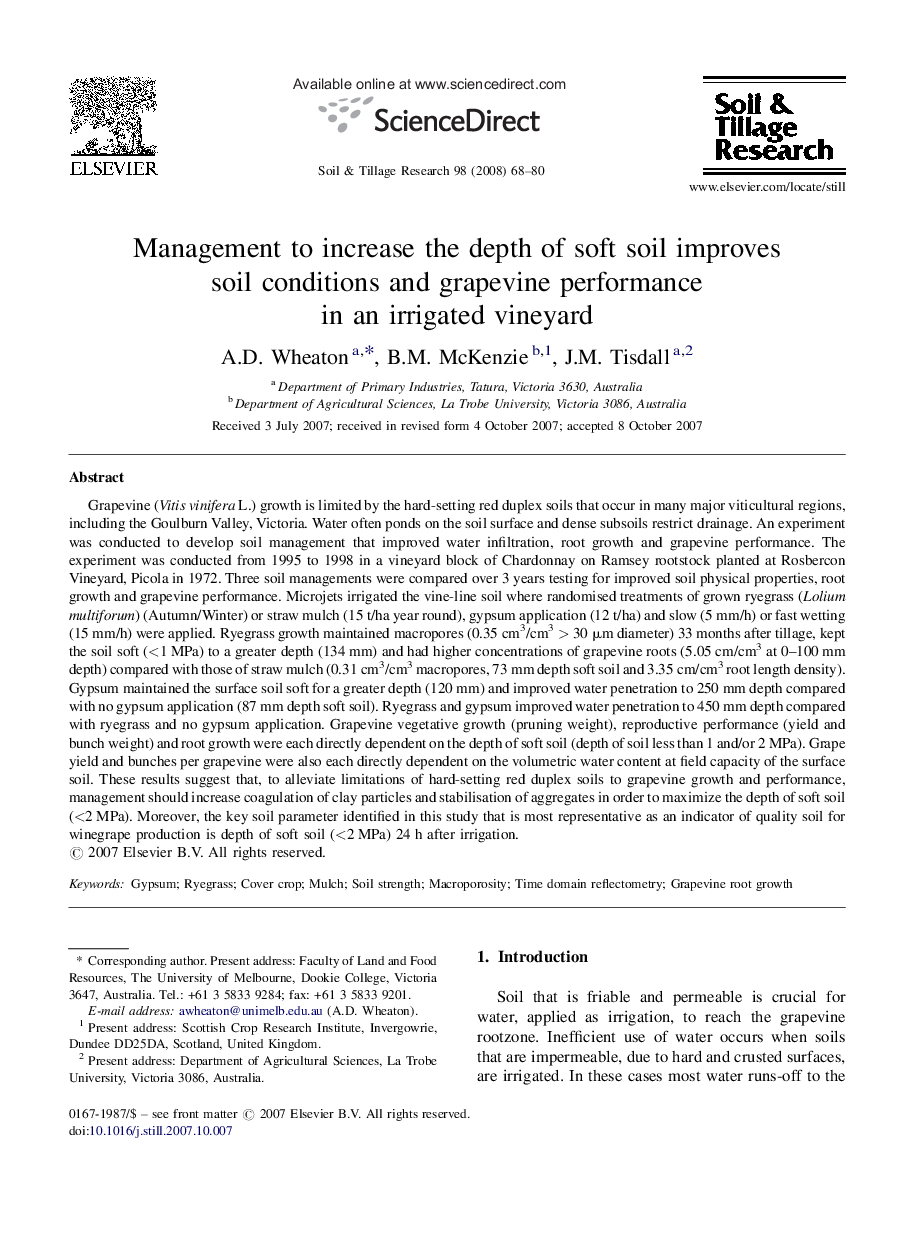| کد مقاله | کد نشریه | سال انتشار | مقاله انگلیسی | نسخه تمام متن |
|---|---|---|---|---|
| 306712 | 513110 | 2008 | 13 صفحه PDF | دانلود رایگان |

Grapevine (Vitis vinifera L.) growth is limited by the hard-setting red duplex soils that occur in many major viticultural regions, including the Goulburn Valley, Victoria. Water often ponds on the soil surface and dense subsoils restrict drainage. An experiment was conducted to develop soil management that improved water infiltration, root growth and grapevine performance. The experiment was conducted from 1995 to 1998 in a vineyard block of Chardonnay on Ramsey rootstock planted at Rosbercon Vineyard, Picola in 1972. Three soil managements were compared over 3 years testing for improved soil physical properties, root growth and grapevine performance. Microjets irrigated the vine-line soil where randomised treatments of grown ryegrass (Lolium multiforum) (Autumn/Winter) or straw mulch (15 t/ha year round), gypsum application (12 t/ha) and slow (5 mm/h) or fast wetting (15 mm/h) were applied. Ryegrass growth maintained macropores (0.35 cm3/cm3 > 30 μm diameter) 33 months after tillage, kept the soil soft (<1 MPa) to a greater depth (134 mm) and had higher concentrations of grapevine roots (5.05 cm/cm3 at 0–100 mm depth) compared with those of straw mulch (0.31 cm3/cm3 macropores, 73 mm depth soft soil and 3.35 cm/cm3 root length density). Gypsum maintained the surface soil soft for a greater depth (120 mm) and improved water penetration to 250 mm depth compared with no gypsum application (87 mm depth soft soil). Ryegrass and gypsum improved water penetration to 450 mm depth compared with ryegrass and no gypsum application. Grapevine vegetative growth (pruning weight), reproductive performance (yield and bunch weight) and root growth were each directly dependent on the depth of soft soil (depth of soil less than 1 and/or 2 MPa). Grape yield and bunches per grapevine were also each directly dependent on the volumetric water content at field capacity of the surface soil. These results suggest that, to alleviate limitations of hard-setting red duplex soils to grapevine growth and performance, management should increase coagulation of clay particles and stabilisation of aggregates in order to maximize the depth of soft soil (<2 MPa). Moreover, the key soil parameter identified in this study that is most representative as an indicator of quality soil for winegrape production is depth of soft soil (<2 MPa) 24 h after irrigation.
Journal: Soil and Tillage Research - Volume 98, Issue 1, January 2008, Pages 68–80